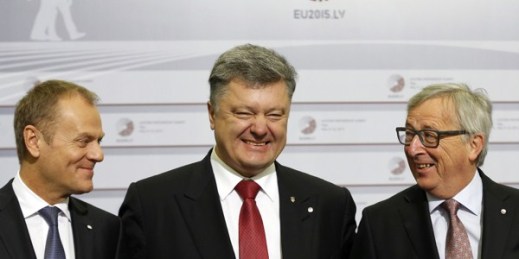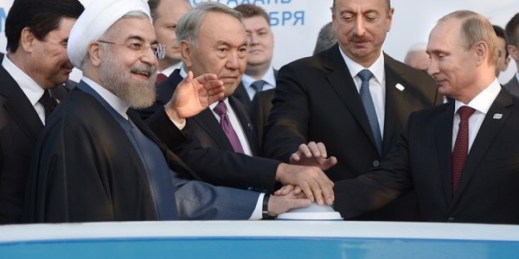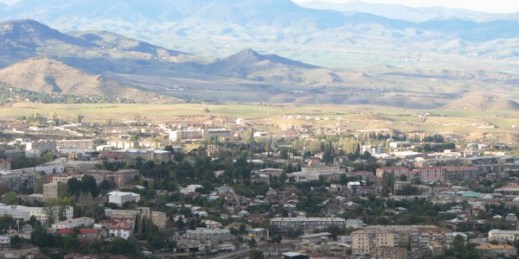
In May 2008, the foreign ministers of Poland and Sweden proposed the Eastern Partnership, an initiative designed to foster ties between the European Union and six former Soviet republics: Belarus, Ukraine, Moldova, Georgia, Armenia and Azerbaijan. That August, a brief war broke out between Georgia and Russia, after which Russia formally recognized the Georgian breakaway enclaves of Abkhazia and South Ossetia as sovereign states. Seven years later, the region remains divided along these lines, with the EU offering a possible future for Russia’s former satellites, and Russia itself using military force and separatist proxies to prevent that from happening. Last […]


